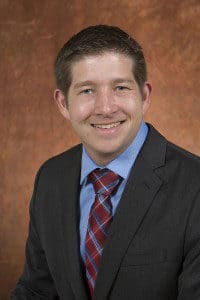- DUI
- Criminal Defense
- Florida DUI
- Traffic Offenses
- Drug Charges
- Marijuana Charges
- Violent Crimes
- Domestic Violence
- Temporary Injunctions
- Weapons Charges
- Theft Crimes
- White Collar Crime
- Juvenile Offenses
- Sex Crimes
- Violation of Probation
- Early Termination of Probation
- Seal or Expunge Criminal Record
- Criminal Appeals
- US Federal Offenses
- Misdemeanor Charges
- Felony Charges
- Co-Defendant Cases
- College Student Defense
- College Student Hearings
- FSU Students
- FAMU Students
- Florida Panhandle Arrests
- Extradition to Florida
- Bench Warrants / Warrants
- Emergency Bond Hearings
- Gambling Charges
- Drone Arrests
- Marsy’s Law
- UAS Infractions
- Introduction of Contraband
- Lying to Police
- Locations
- Case Results
- Our Firm
- Media
- Resources
- Blog
- Contact Us
Why Do Universities Investigate Sexual Assault?
November 27, 2017 Don Pumphrey, Jr. Sex Crimes Sexual Assault, Title IX Social Share
Accusations and Investigations into Sexual Assault are handled by Colleges and Universities according to something called Title IX.[1] Title IX mandates require all individuals to receive equal access to higher education, regardless of gender.[2] This requires public institutions to adequately address instances of sexual harassment or assault, in order to guarantee the alleged victims are allowed full access to their education.[3] Title IX protections – generally speaking – are a wonderful addition to our higher education, they protect sports, to make sure men and women receive equal funding, and prevent discrimination against either gender. In the context of sexual harassment and assault, they make sure victims are able to participate in their education without being hindered by wrongdoers.
Universities have become rapidly equipped to assess accusations of sexual harassment and assault, in order to make sure these protections are in place, but also to preserve the stream of federal funding. The problem with this arises when there are false accusations. Federal funding can be interrupted when cases of sexual assault go unaddressed, but there is no punishment for over-reaction by the school when there was no offense committed. If you are accused of sexual assault by your school, the FIRST thing you need to do is find a lawyer. The process is required in order to protect the alleged victim, the goal is not necessarily finding the truth. For that reason, the accused is often presumed to be guilty, and must prove their own innocence.[4] To further compound this issue, is the addition of a self-regulated process at each institution. Criminal law has a way of naturally being spread, even state specific laws, and people have a general understanding of their rights. Misinformation in the casual spread of criminal procedure is far worse in the world of university Title IX complaints, as each school has a completely different procedure and set of rules. These rules can even change every year at the state legislature, or individual school’s desire.[5]
If you have been accused by your school of wrongdoing, it may seem similar to a criminal accusation, but it could be even more damaging. Expulsion may seem less harsh than incarceration, but for an innocent party who will be presumed guilty in a Title IX investigation, expulsion is a very real possibility, whereas legal punishment is very unlikely. Make sure to protect yourself. Our attorneys handle these cases regularly and are prepared to protect your rights. If you have been accused or are worried an accusation may arise, call our office any time at 850/681-7777 to set a free consultation with an experienced sex crime lawyer.
[1] Patsy Mink Equal Opportunity in Education Act, 20 U.S.C. §§ 1681 – 1688.
[2] Id. at § 1681(a) (“No person in the United States shall, on the basis of sex, be excluded from participation in, be denied the benefits of, or be subjected to discrimination under any education program or activity receiving Federal financial assistance”).
[3] Oғғɪᴄᴇ ᴏғ ᴛʜᴇ Assɪsᴛᴀɴᴛ Sᴇᴄʀᴇᴛᴀʀʏ, Dear Colleague Letter (Apr. 4, 2011), https://www2.ed.gov/about/offices/list/ocr/letters/colleague-201104.html (“Sexual harassment of students, which includes acts of sexual violence, is a form of sex discrimination prohibited by Title IX. In order to assist recipients, which include school districts, colleges, and universities (hereinafter “schools” or “recipients”) in meeting these obligations, this letter1 explains that the requirements of Title IX pertaining to sexual harassment also cover sexual violence, and lays out the specific Title IX requirements applicable to sexual violence.2 Sexual violence, as that term is used in this letter, refers to physical sexual acts perpetrated against a person’s will or where a person is incapable of giving consent due to the victim’s use of drugs or alcohol.”)
[4] Ashe Schow, What to do If You’re Falsely Accused of Campus Sexual Assault, Wᴀsʜɪɴɢᴛᴏɴ Exᴀᴍɪɴᴇʀ, Feb. 19, 2016, http://www.washingtonexaminer.com/what-to-do-if-youre-falsely-accused-of-campus-sexual-assault/article/2583661.
[5] Id.
Article Written by:
J Brent Marshall, Florida State University College of Law and Pumphrey Law, Law Clerk











